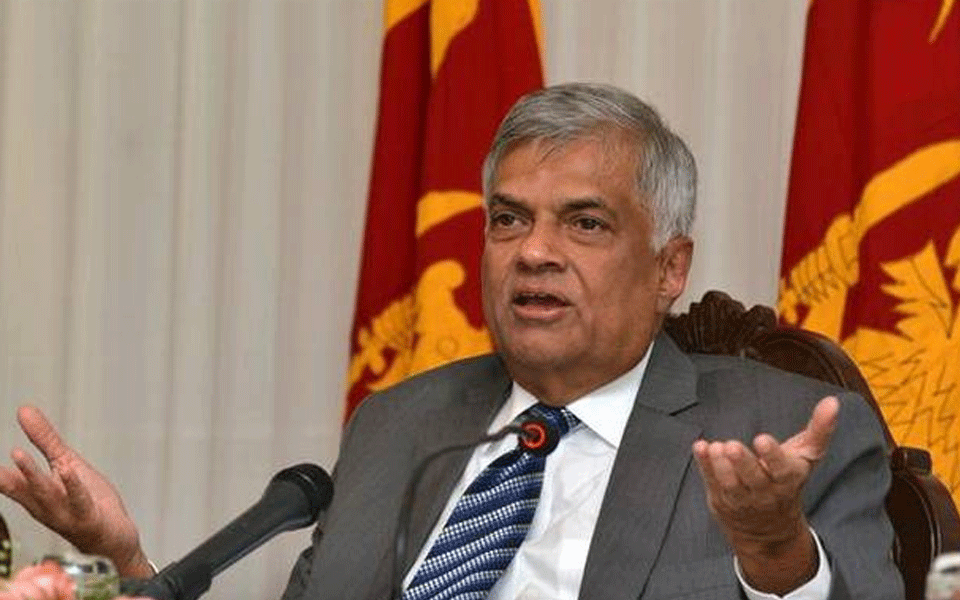Colombo: Sri Lankan Prime Minister Ranil Wickremesinghe admitted Tuesday that there had been prior intelligence warnings about the attacks in the country, including on the Indian High Commission in Colombo.
Talking to reporters, he also said that there will be changes in the top positions of the security establishment following the deadly Easter Sunday suicide bombings which killed 321 people and injured over 500.
Wickremesinghe said there had been prior intelligence warnings on the attacks including on the Indian High Commission.
Earlier addressing Parliament, he said investigators have made good progress identifying the suspects and that some of the bombers travelled abroad and then returned home.
He said "it was possible" the bombings were a "retaliation" for the New Zealand mosque attacks that left 50 Muslims dead and were blamed on a white supremacist from Australia. Defence Minister Ruwan Wijewardene made the similar remark earlier in the day.
Wickremesinghe said that Sri Lanka has been offered assistance by many countries and international organisations, including the UN, the Interpol, to combat terrorism.
"We should seize this opportunity use their assistance to eradicate terrorism", he said.
The Prime Minister said that Sri Lanka has entered the map of global terrorism with the ruthless attacks on Sunday. "Therefore, we have to consider those who launched the attack as global terrorists and it is time to bring about structural changes to face this terror situation".
He said that Sri Lanka was facing global terrorism today and it has nothing to do with ethnic or religious extremists.
The Prime Minister stressed that a majority of Muslims were against terrorism and extremism.
Defence Secretary Hemasiri Fernando said Tuesday that the FBI has already commenced investigations into the incident while the Interpol is expected to arrive in the country.
He also pointed out that the recent attacks targeted the country's economy and also the tourism industry. Accordingly, the government has taken steps to implement a special plan in order to protect the tourism industry, he said.
The Islamic State has claimed responsibility for the devastating Easter blasts in Sri Lanka and identified the seven suicide bombers who were involved in the attacks.
Forty suspects, including the driver of a van allegedly used by the suicide bombers, have been arrested so far in connection with the attacks that shocked Sri Lankans who observed a day of national mourning on Tuesday.
National flags were lowered to half mast and people bowed their heads as a three-minute silence began at 8:30 am local time, the time the first of the attacks occurred on Sunday.
Let the Truth be known. If you read VB and like VB, please be a VB Supporter and Help us deliver the Truth to one and all.
Dubai: Smoke was seen rising from an area near the United States Consulate in Dubai, according to witness accounts cited by Reuters.
There was no immediate official confirmation on the extent of damage or whether there were any casualties in the incident.
Earlier, the US embassy in Riyadh, Saudi Arabia’s capital, was also attacked. Authorities reported damage to the premises, but no casualties were recorded.
The developments come amid heightened tensions in the region, with Iran continuing to target US interests in the Middle East following deadly attacks launched on Saturday by Israel and the United States.
Near US embassy in Dubai pic.twitter.com/z5VTZNVxNO
— Sahil Shah (@thesahilsshah) March 3, 2026





